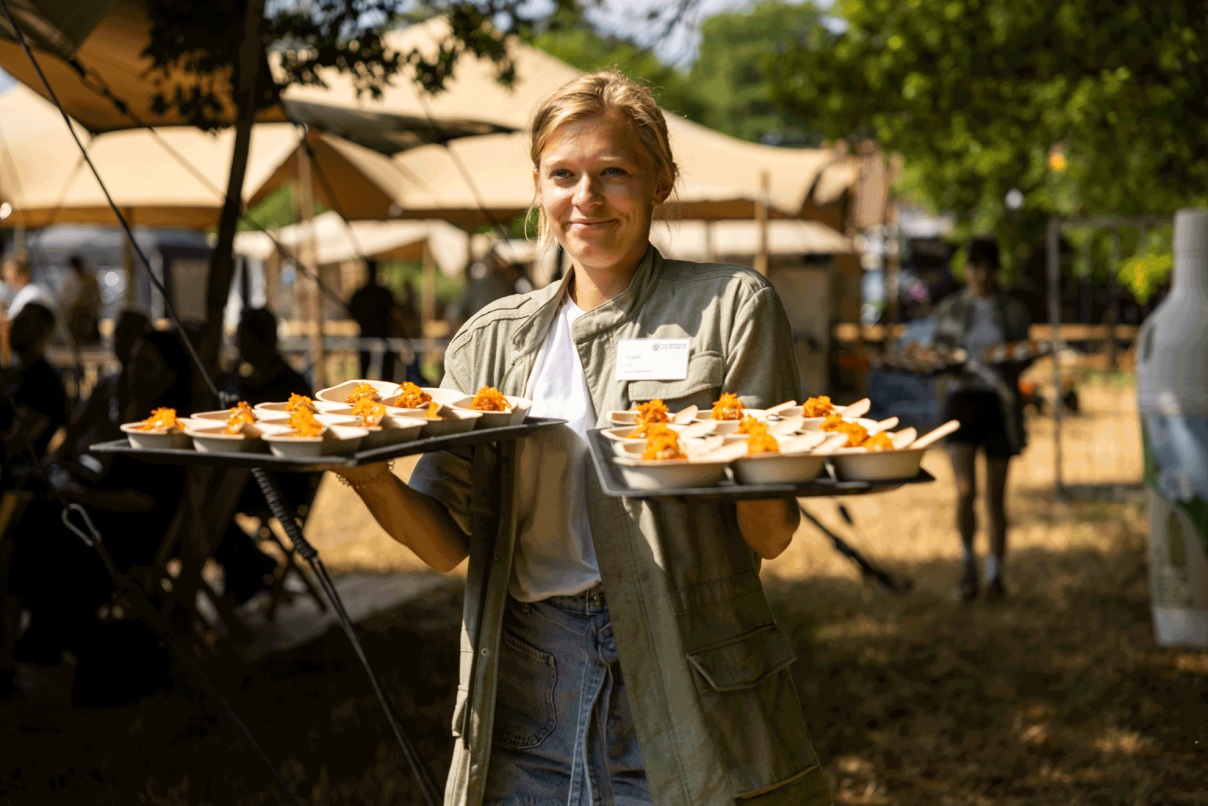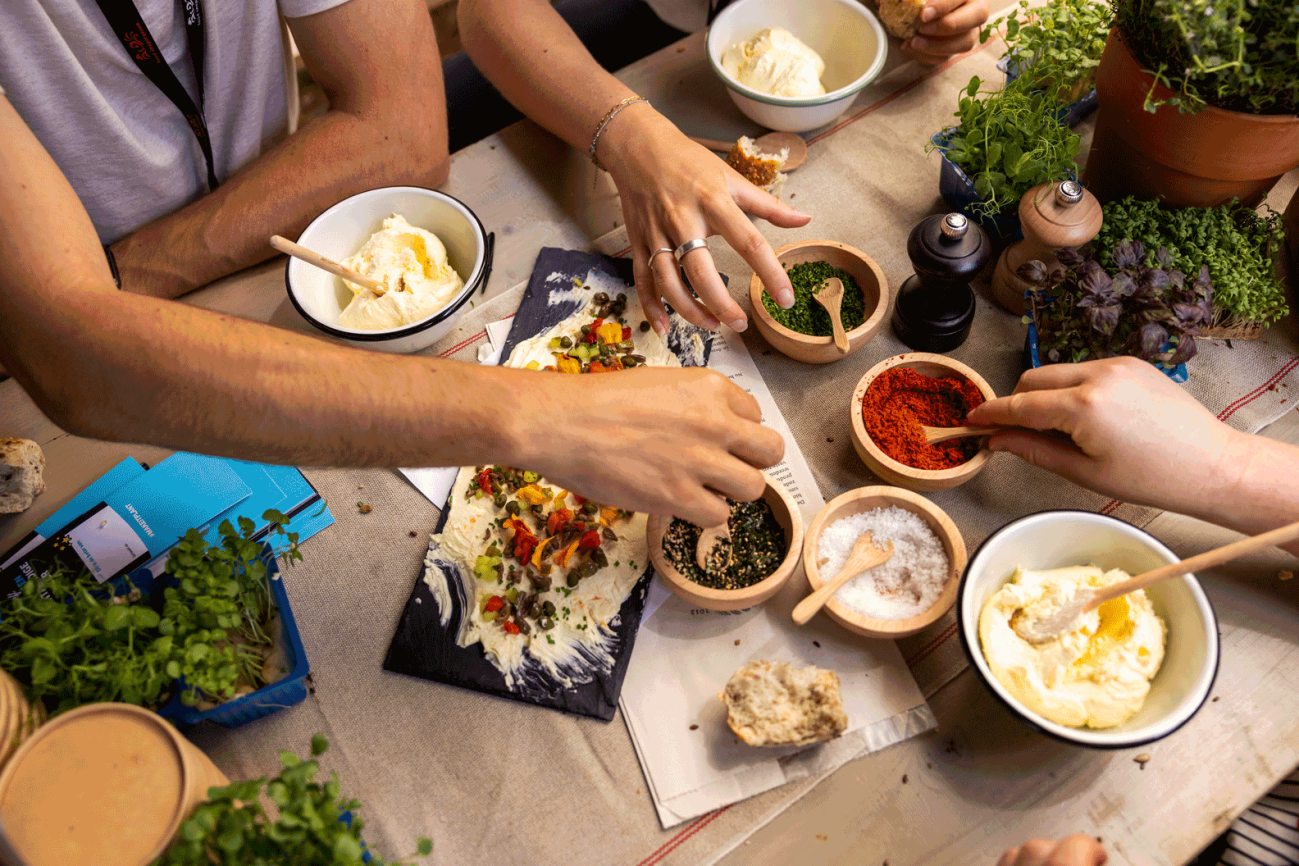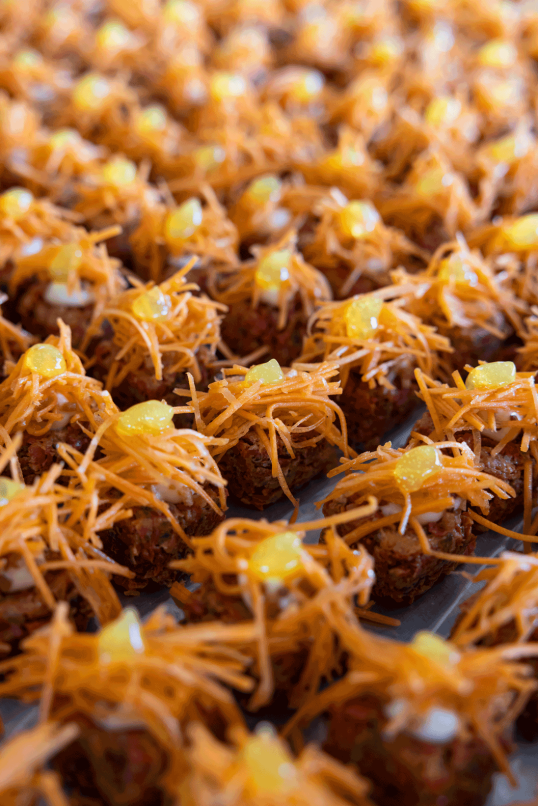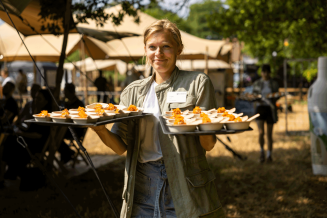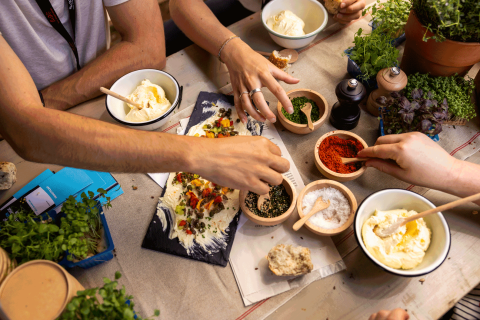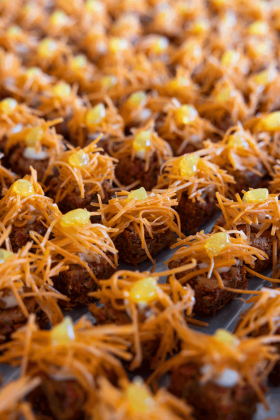Editorial
6 min
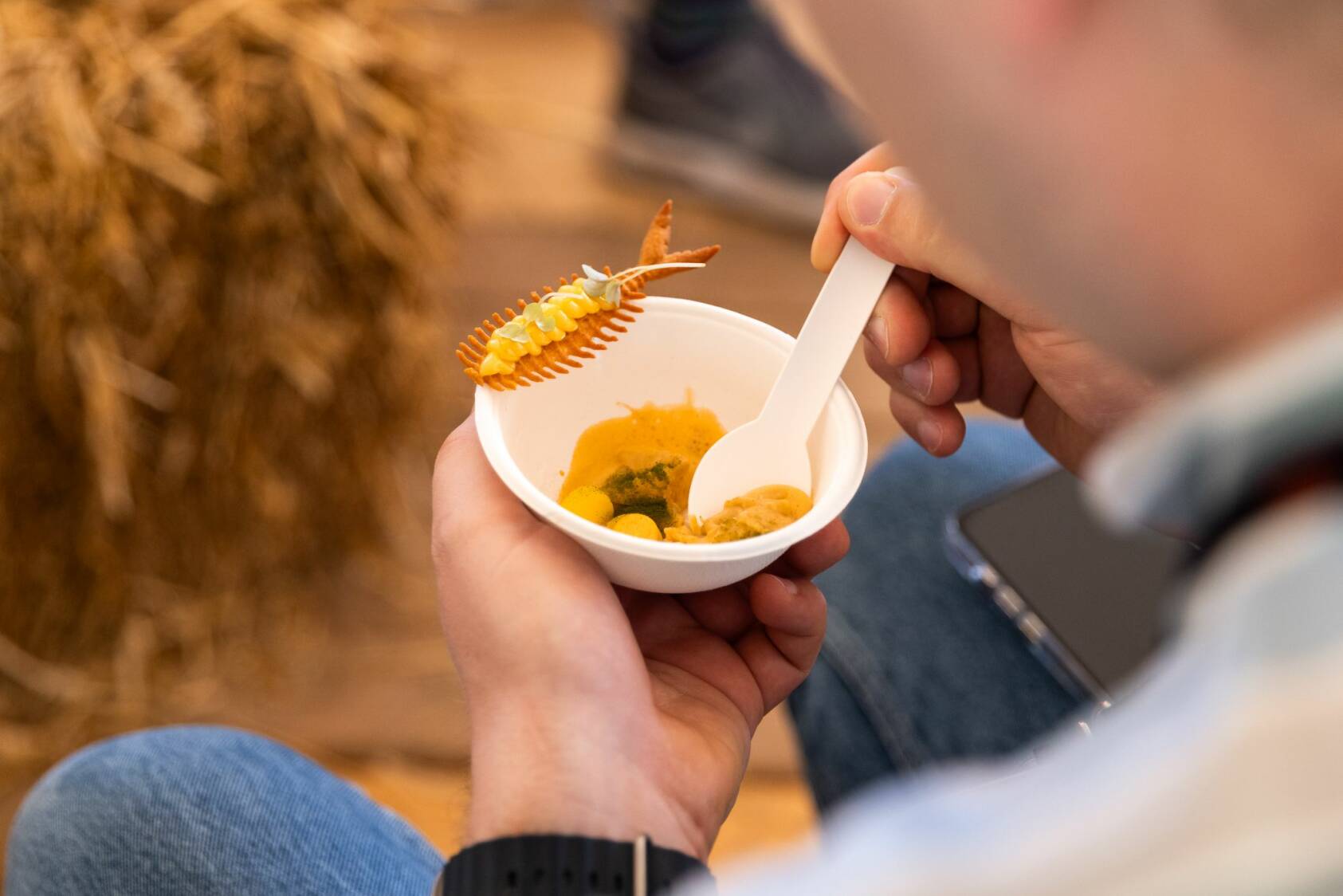
new taste new taste new taste new taste new taste
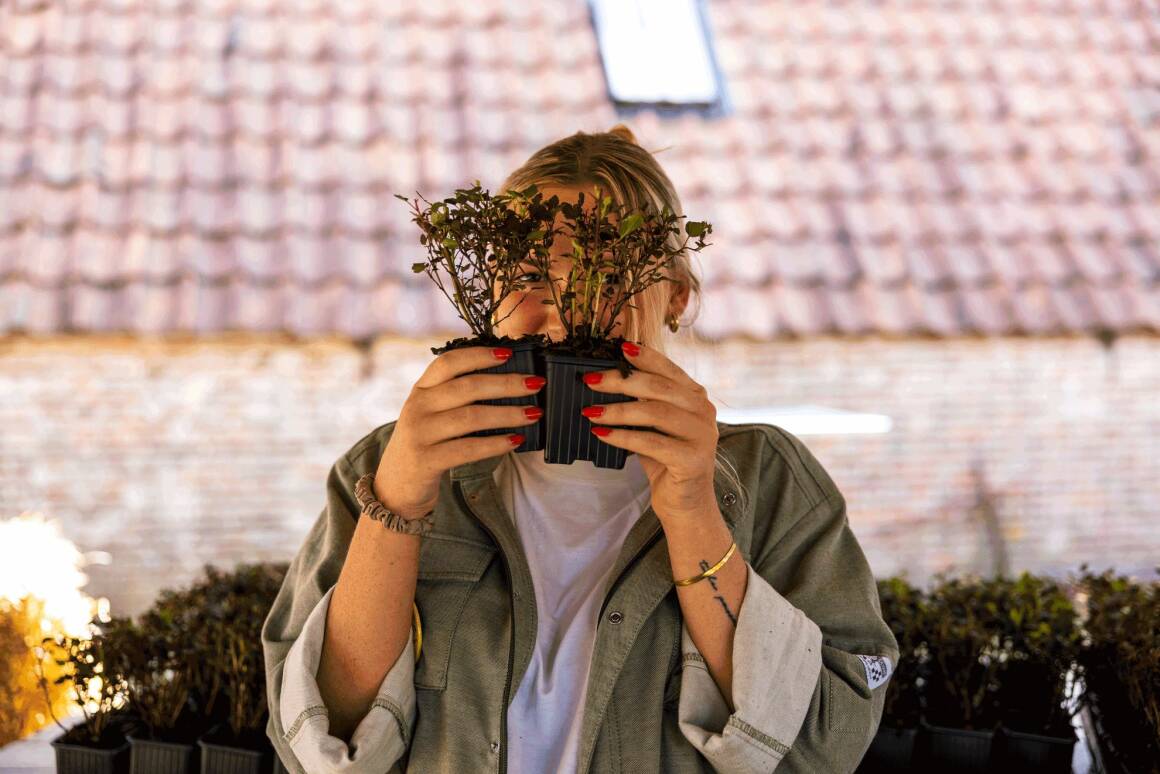


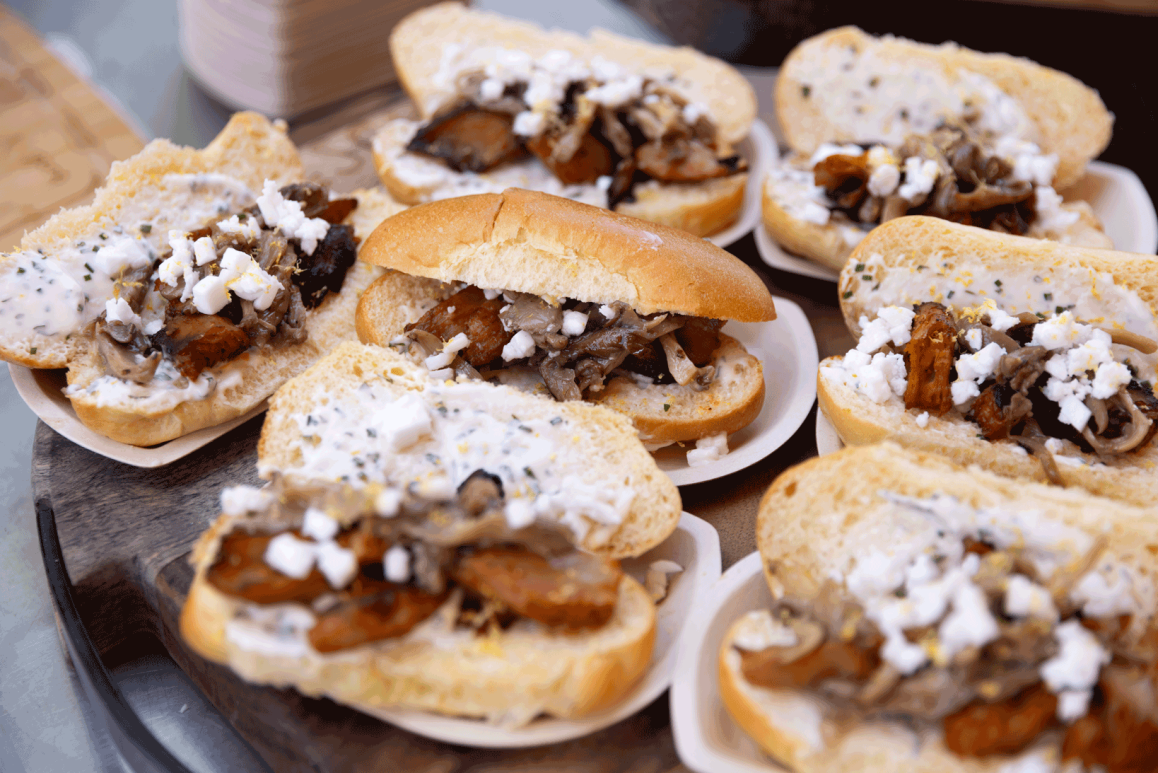
Fermentation of leftovers
When using a beer tap, there is always some tap loss, beet that disappears into the well. During the event, this waste was collected in barrels and delivered to fermentation specialist Christian Weij, who will upcycle the tap loss to create a beer vinegar. All unused bread was collected as well, and will be processed into miso by Weij. The aim is to let the public taste these residual flows during Food Inspiration Days 2024.
As for additional food waste, all remaining food that could not be taken back by partners, but had not yet been processed, was donated to the local Food Bank.
Compostable disposables
and food waste
With more than 45 partners, a number of workshops and various tastings during the festival, there was a substantial number of food items to sample. During the planning process, we agreed to work with only one type of disposable container for all food items. After collection, these disposables would be converted into compost in a composter within 8 to 10 days. This gave this residual flow a second life.
Choosing one kind of disposable is crucial to ensure optimal recyclability. The choice made is not a value judgment about what is the best or most sustainable disposable on the market. The decision was based on the fact that mixing different materials actually makes separation more difficult. We found that choosing one type of disposable instead of many is an important component to effective recycling.
Reusable glassware
During Food Inspiration Days reusable glassware has been used for coffee cups, wine and cocktail glasses. All reusable items were collected during the event and washed. They were then recirculated cleanly. The rinsing machine was hired on behalf of all partners and manned continuously.
At the end of the festival, all cups and glasses were collected, washed again and packed cleanly in cardboard boxes. This way, the supplier was able to take the residual flow back.
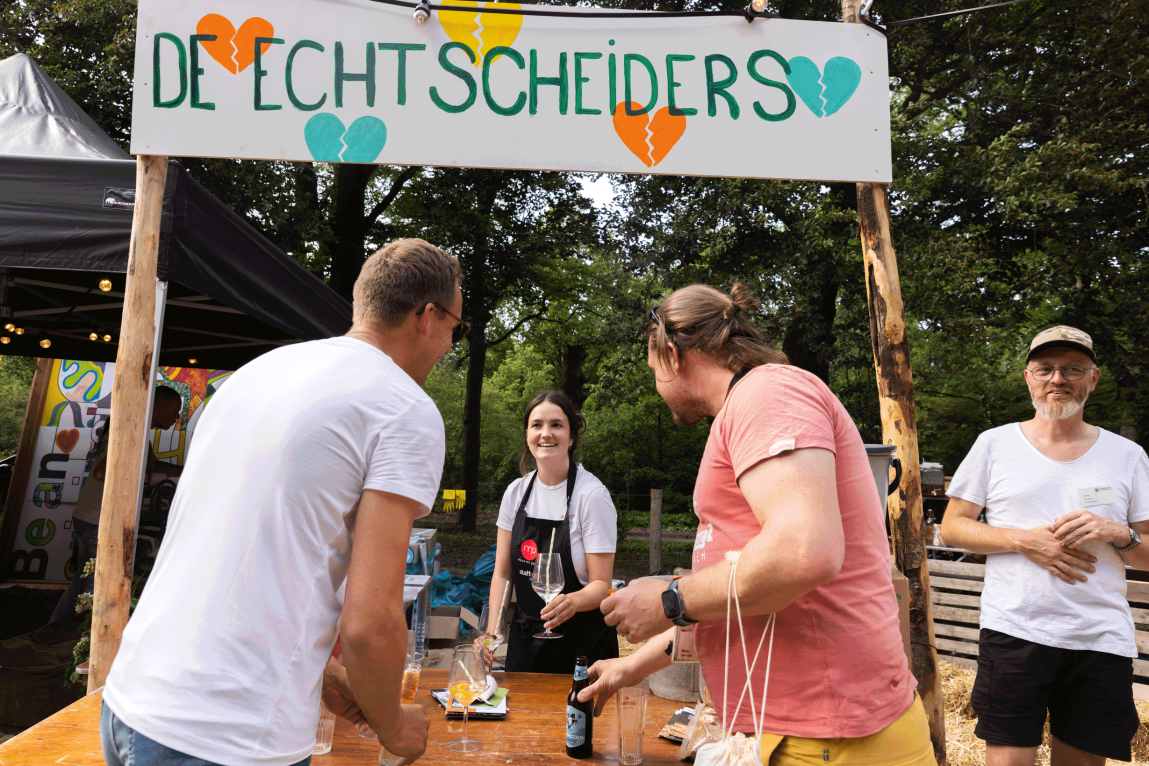
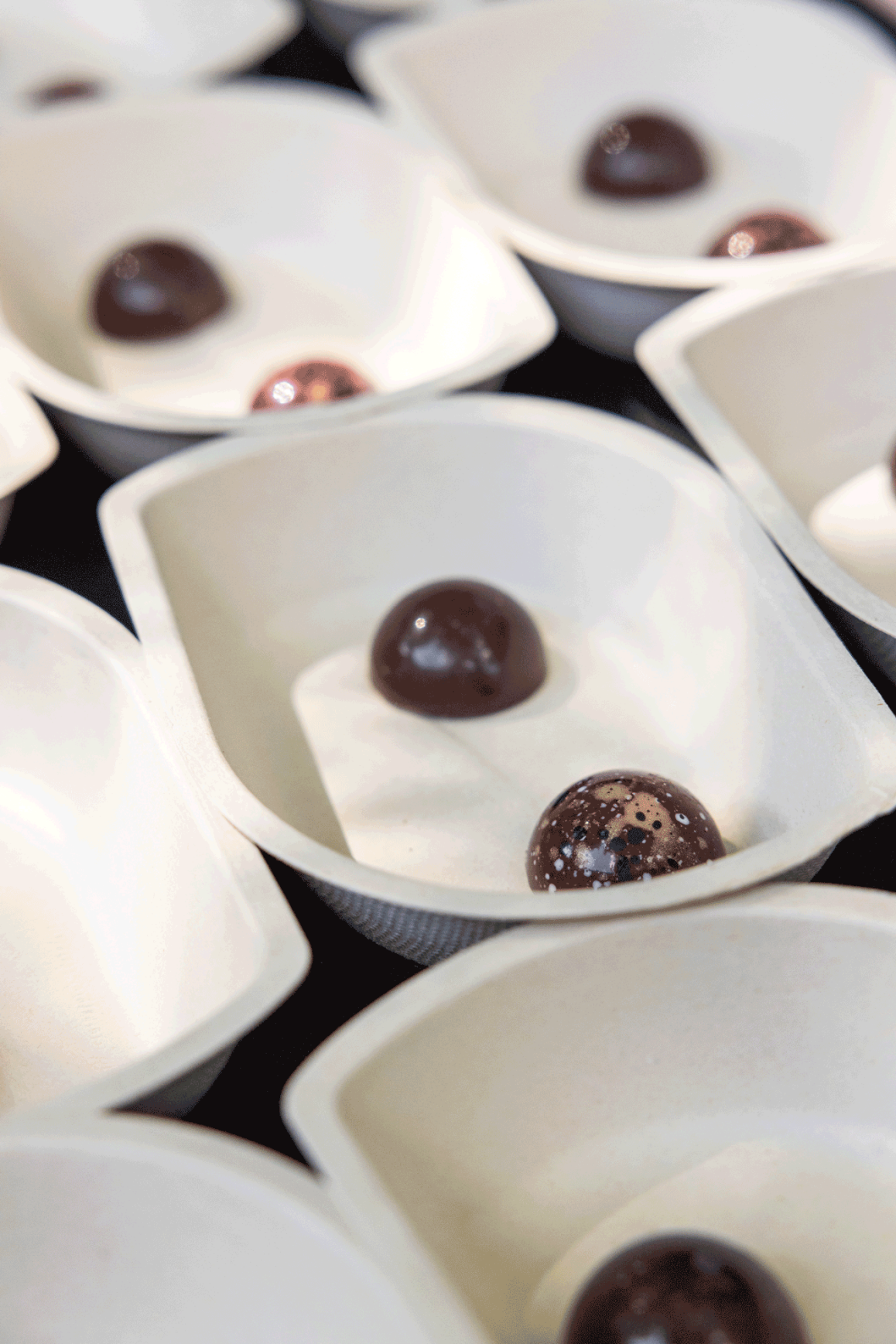
Taste of AI
“How does love taste?” Food Inspiration asked ChatGPT. The chatbot answered with a recipe for a bonbon. We took the recipe to renowned chocolate master Callebaut, and asked him to create a confection on the basis of this AI-recipe. And so they did. Next to this AI-chocolate, the team also created their own ‘chocolate of love.’ Visitors tried both chocolates side by side; most enjoyed the chef’s recipe better, but were also surprised by the culinary possibilities of ChatGPT.
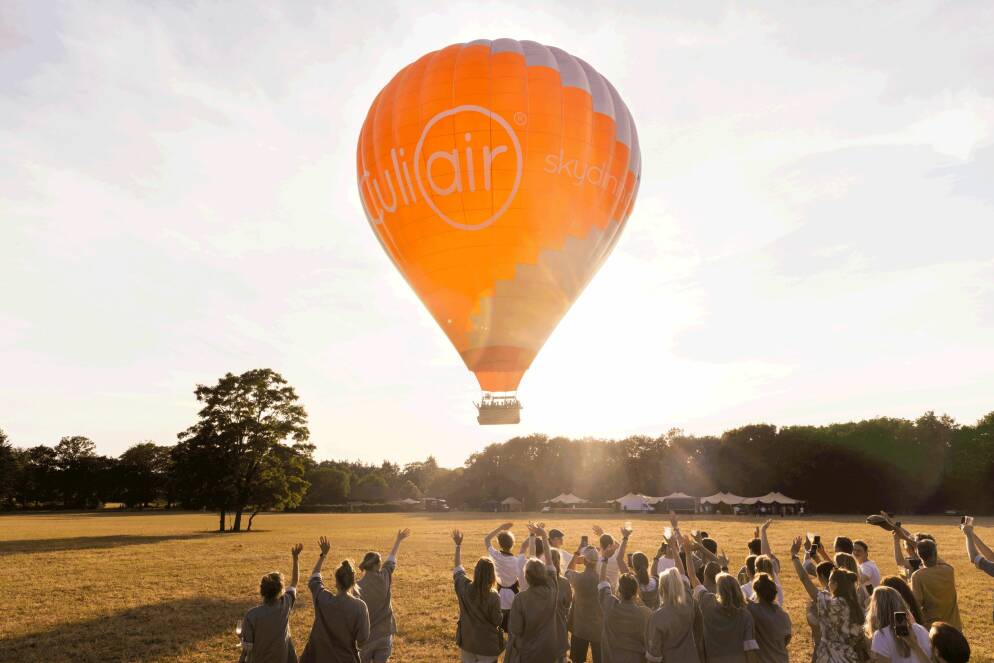
Michelin chef versus farmer
Two Dutch Michelin star chefs were invited to create a signature dish for the visitors of the event, where they were asked to combine their own specialties with the award winning cheese from Remeker Farm, where the event was organized. Thijs Meliefste, who specializes in local fish and seafood served a bouillabaisse with a cheese cracker in the shape of a fish. And Niven Kunz, also known in The Netherlands as 'vegetable chef,' recreated his signature dish, a plant-based tartar of carrot, with a cream made from Remeker cheese.
Fonio
During the event, visitors could taste a relatively unknown superfood: fonio. Originally an ancient grain from West Africa, Fonio is a cereal with high nutritional values. Fonio is also nutritious, rich in protein, fiber, vitamins and minerals and it is gluten-free. The ancient grain is resilient, growing quickly while withstanding a dry savanna climate. The crop is typically ready for harvest within six to eight weeks, and hardly needs any water. For these reasons, experts foresee fonio as a possible solution to the grain crisis.
CuliAir skydining restaurant
The CuliAir balloon is the only air balloon restaurant in the world. In the skydiving restaurant, Dutch master chef Angélique Schmeinck, cooks on the hot air of the balloon and serves a three course meal during the flight. Each time the balloon goes up, there is space for 16 diners. At the end of Food Inspiration Days Outdoor, the balloon went up in the air as well. Visitors to the event could win tickets to this bespoke experience during the day, and fortunate guests were invited to join the air balloon flight that evening. It was a special and unique, sky high culinary experience.
Beverage packaging
All beverage services were outlined in advance with various beverage partners. This involved looking at the how, where, when and in which way these offerings were served. Agreements were made about what would happen with the reflux of packaging, and the product itself.
As a result, all returnable packaging used during the festival has been returned as packaging. An estimated 99.5% of the plastic water bottles and of the drink cans have also been returned at the end of the event. All glass wine and lemonade bottles were collected and returned via the glass bank. Empty specialty beer bottles were also returned in the original crates of the brewer.
No bins
Instead of waste bins, various waste sorting stations were placed across the festival grounds. Visitors could dispose of all their waste there, which was then immediately separated into the correct waste streams by our team members. Visitors felt co-responsible, and were happy to lend a hand in sorting.
The lack of garbage bins meant that there were no 'anonymous' waste streams. Secretly and quickly throwing something in a trash can was not an option. Instead, waste was immediately and optimally collected separately.
Beer made from whey
Remeker Farm cheese makers work in concert with nature on their farm. Both healthy soil and healthy animals are core to the company, because when they are not aligned, it creates a negative impact on the taste of the cheese. Circularity is also an important component of Remeker's working method. New products are made from residual products, so nothing has to be thrown away. At the event, visitors could taste a beer made from whey, the liquid that remains when cheese is made. Remeker Farm partnered with a beer brewer to create four different whey-based beers: a stout, a rye beer, a sour beer based on raspberries and a 'regular' beer.
No waste and a lot of taste during Food Inspiration Days Outdoor
What does a 100% waste-free B2B event for 1,200 food professionals look like?
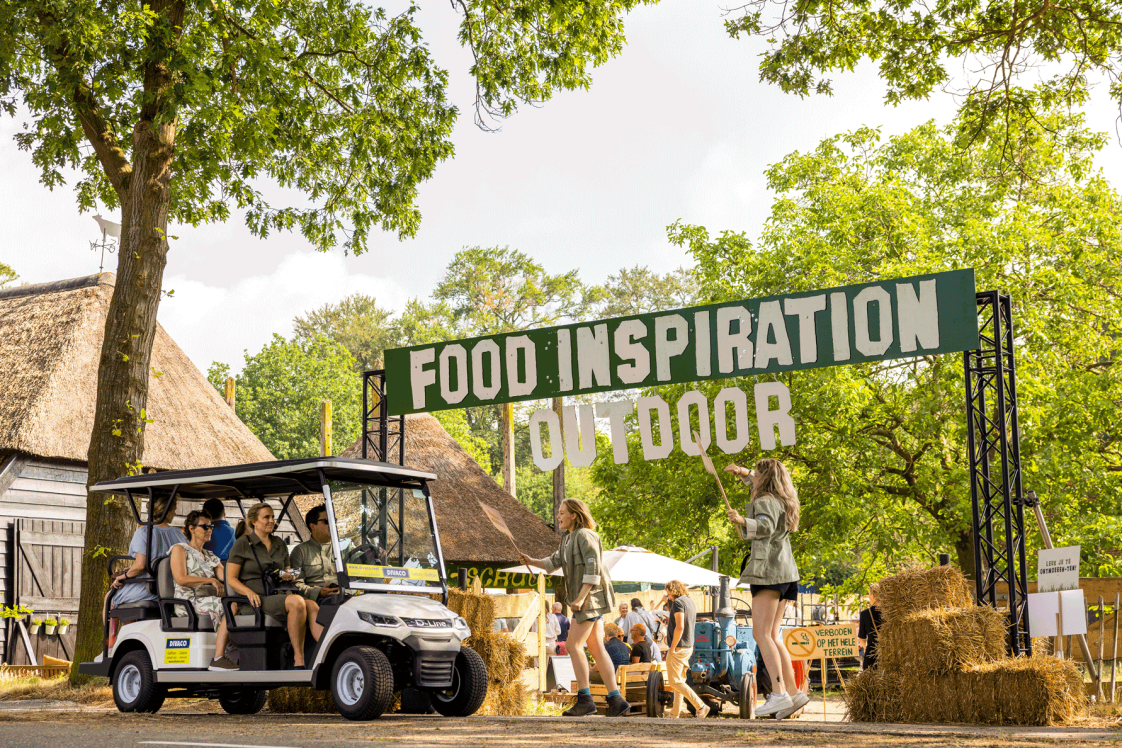
no waste no waste no waste no waste no waste no
Maaike de Reuver Floris Heuer, Nadia ten Wolde, Willeke Machiels Loraine Elemans
What is the best approach to organizing a food festival with as little waste and as many new tastes and food innovations as possible? That’s the question all of us at Food Inspiration recently asked ourselves. The result was our Food Inspiration Days Outdoor event in June 2023. Approximately 1,200 people from the food industry visited the two day festival hosted at Remeker Farms, a well known Dutch purveyor of Remeker cheese.
Beer made from whey
Remeker Farm cheese makers work in concert with nature on their farm. Both healthy soil and healthy animals are core to the company, because when they are not aligned, it creates a negative impact on the taste of the cheese. Circularity is also an important component of Remeker's working method. New products are made from residual products, so nothing has to be thrown away. At the event, visitors could taste a beer made from whey, the liquid that remains when cheese is made. Remeker Farm partnered with a beer brewer to create four different whey-based beers: a stout, a rye beer, a sour beer based on raspberries and a 'regular' beer.
Fonio
During the event, visitors could taste a relatively unknown superfood: fonio. Originally an ancient grain from West Africa, Fonio is a cereal with high nutritional values. Fonio is also nutritious, rich in protein, fiber, vitamins and minerals and it is gluten-free. The ancient grain is resilient, growing quickly while withstanding a dry savanna climate. The crop is typically ready for harvest within six to eight weeks, and hardly needs any water. For these reasons, experts foresee fonio as a possible solution to the grain crisis.
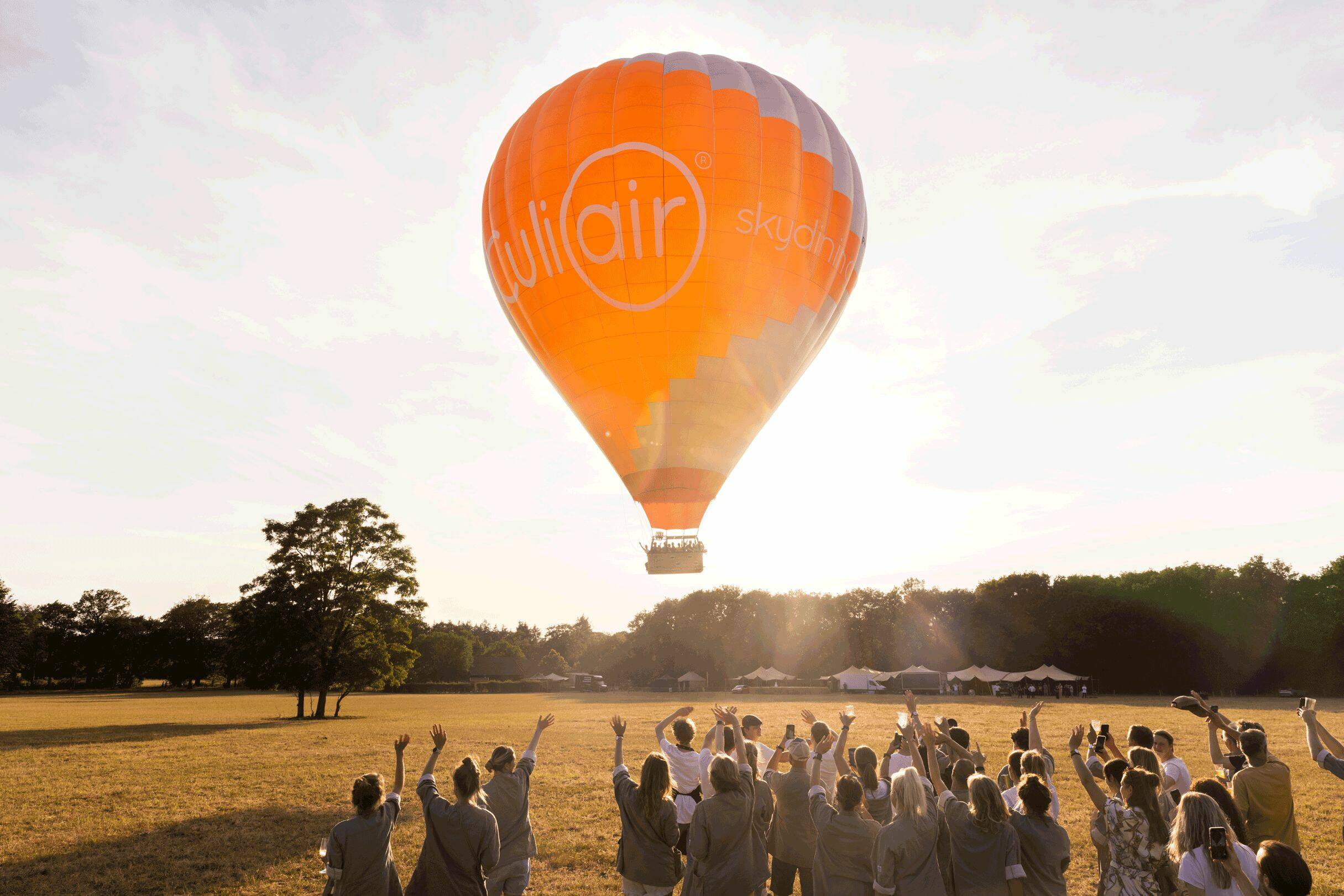
CuliAir skydining restaurant
The CuliAir balloon is the only air balloon restaurant in the world. In the skydiving restaurant, Dutch master chef Angélique Schmeinck, cooks on the hot air of the balloon and serves a three course meal during the flight. Each time the balloon goes up, there is space for 16 diners. At the end of Food Inspiration Days Outdoor, the balloon went up in the air as well. Visitors to the event could win tickets to this bespoke experience during the day, and fortunate guests were invited to join the air balloon flight that evening. It was a special and unique, sky high culinary experience.
Compostable disposables
and food waste
With more than 45 partners, a number of workshops and various tastings during the festival, there was a substantial number of food items to sample. During the planning process, we agreed to work with only one type of disposable container for all food items. After collection, these disposables would be converted into compost in a composter within 8 to 10 days. This gave this residual flow a second life.
Choosing one kind of disposable is crucial to ensure optimal recyclability. The choice made is not a value judgment about what is the best or most sustainable disposable on the market. The decision was based on the fact that mixing different materials actually makes separation more difficult. We found that choosing one type of disposable instead of many is an important component to effective recycling.
Beverage packaging
All beverage services were outlined in advance with various beverage partners. This involved looking at the how, where, when and in which way these offerings were served. Agreements were made about what would happen with the reflux of packaging, and the product itself.
As a result, all returnable packaging used during the festival has been returned as packaging. An estimated 99.5% of the plastic water bottles and of the drink cans have also been returned at the end of the event. All glass wine and lemonade bottles were collected and returned via the glass bank. Empty specialty beer bottles were also returned in the original crates of the brewer.
Reusable glassware
During Food Inspiration Days reusable glassware has been used for coffee cups, wine and cocktail glasses. All reusable items were collected during the event and washed. They were then recirculated cleanly. The rinsing machine was hired on behalf of all partners and manned continuously.
At the end of the festival, all cups and glasses were collected, washed again and packed cleanly in cardboard boxes. This way, the supplier was able to take the residual flow back.
Taste of AI
“How does love taste?” Food Inspiration asked ChatGPT. The chatbot answered with a recipe for a bonbon. We took the recipe to renowned chocolate master Callebaut, and asked him to create a confection on the basis of this AI-recipe. And so they did. Next to this AI-chocolate, the team also created their own ‘chocolate of love.’ Visitors tried both chocolates side by side; most enjoyed the chef’s recipe better, but were also surprised by the culinary possibilities of ChatGPT.
ceramic ceramic ceramic ceramic
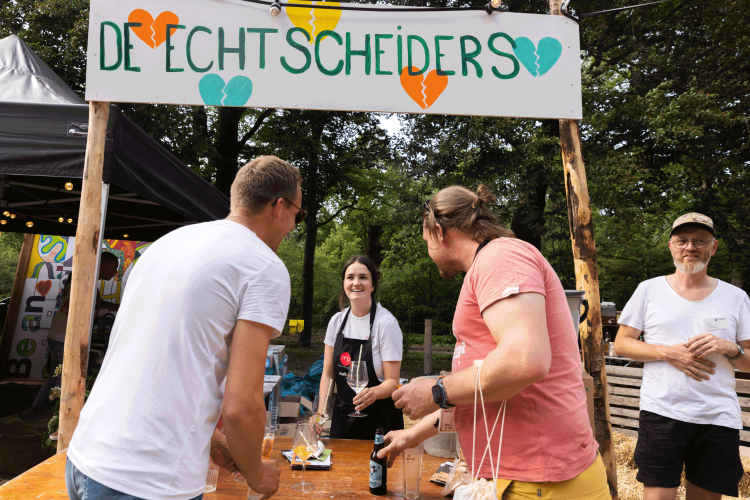
No bins
Instead of waste bins, various waste sorting stations were placed across the festival grounds. Visitors could dispose of all their waste there, which was then immediately separated into the correct waste streams by our team members. Visitors felt co-responsible, and were happy to lend a hand in sorting.
The lack of garbage bins meant that there were no 'anonymous' waste streams. Secretly and quickly throwing something in a trash can was not an option. Instead, waste was immediately and optimally collected separately.
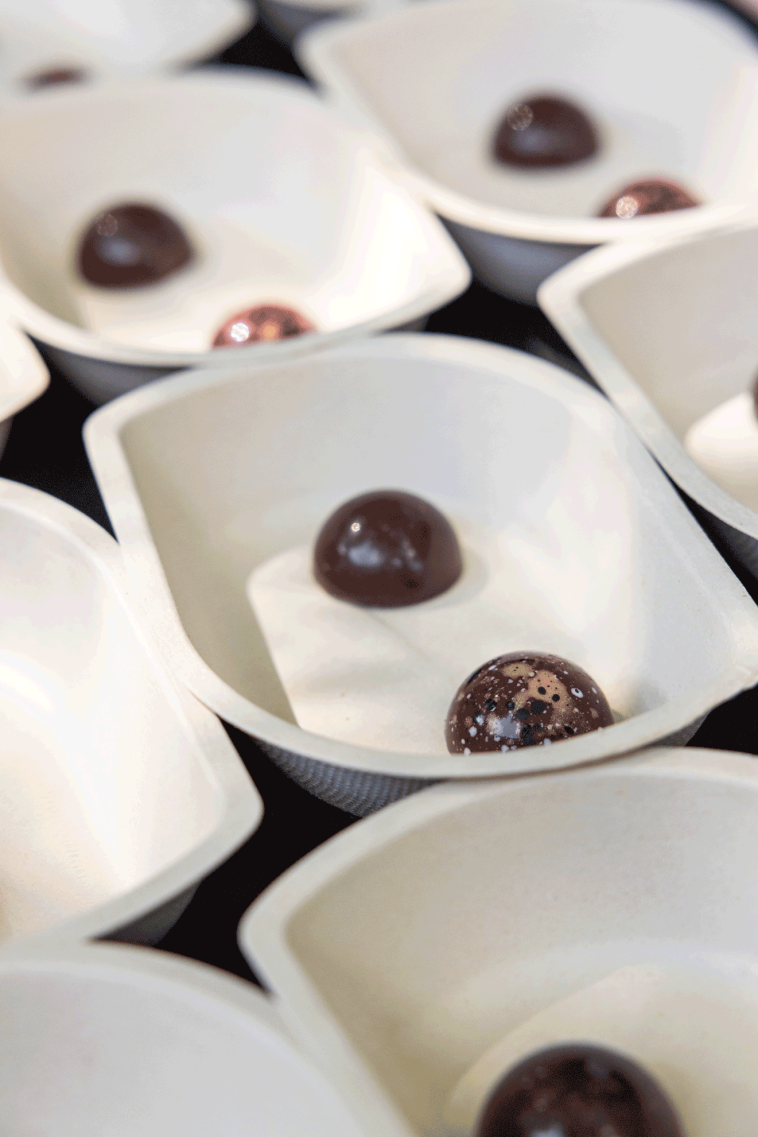
Fermentation of leftovers
When using a beer tap, there is always some tap loss, beet that disappears into the well. During the event, this waste was collected in barrels and delivered to fermentation specialist Christian Weij, who will upcycle the tap loss to create a beer vinegar. All unused bread was collected as well, and will be processed into miso by Weij. The aim is to let the public taste these residual flows during Food Inspiration Days 2024.
As for additional food waste, all remaining food that could not be taken back by partners, but had not yet been processed, was donated to the local Food Bank.
no waste no waste no waste no waste no waste no
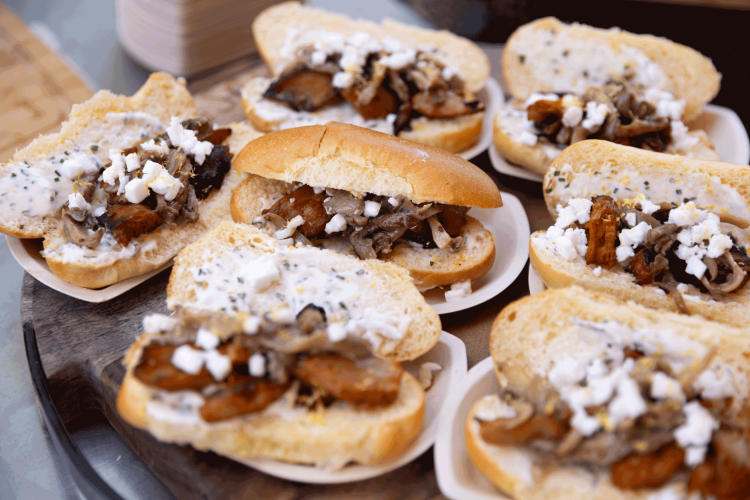
Michelin chef versus farmer
Two Dutch Michelin star chefs were invited to create a signature dish for the visitors of the event, where they were asked to combine their own specialties with the award winning cheese from Remeker Farm, where the event was organized. Thijs Meliefste, who specializes in local fish and seafood served a bouillabaisse with a cheese cracker in the shape of a fish. And Niven Kunz, also known in The Netherlands as 'vegetable chef,' recreated his signature dish, a plant-based tartar of carrot, with a cream made from Remeker cheese.
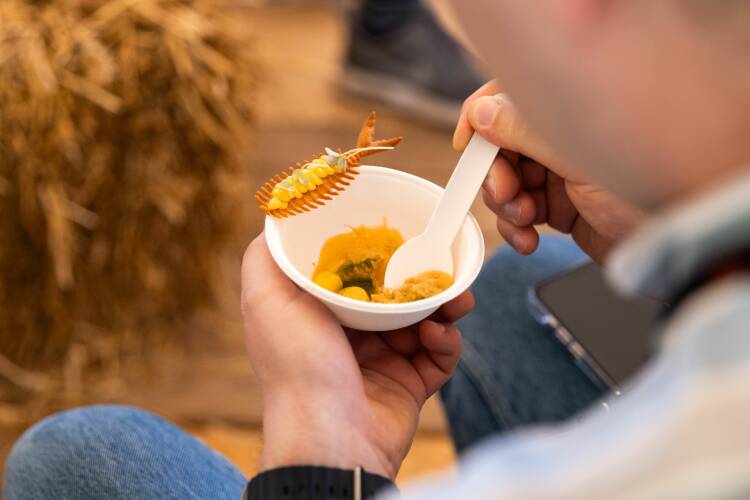
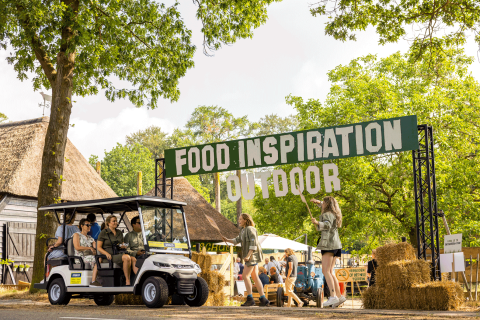
new taste new taste new taste
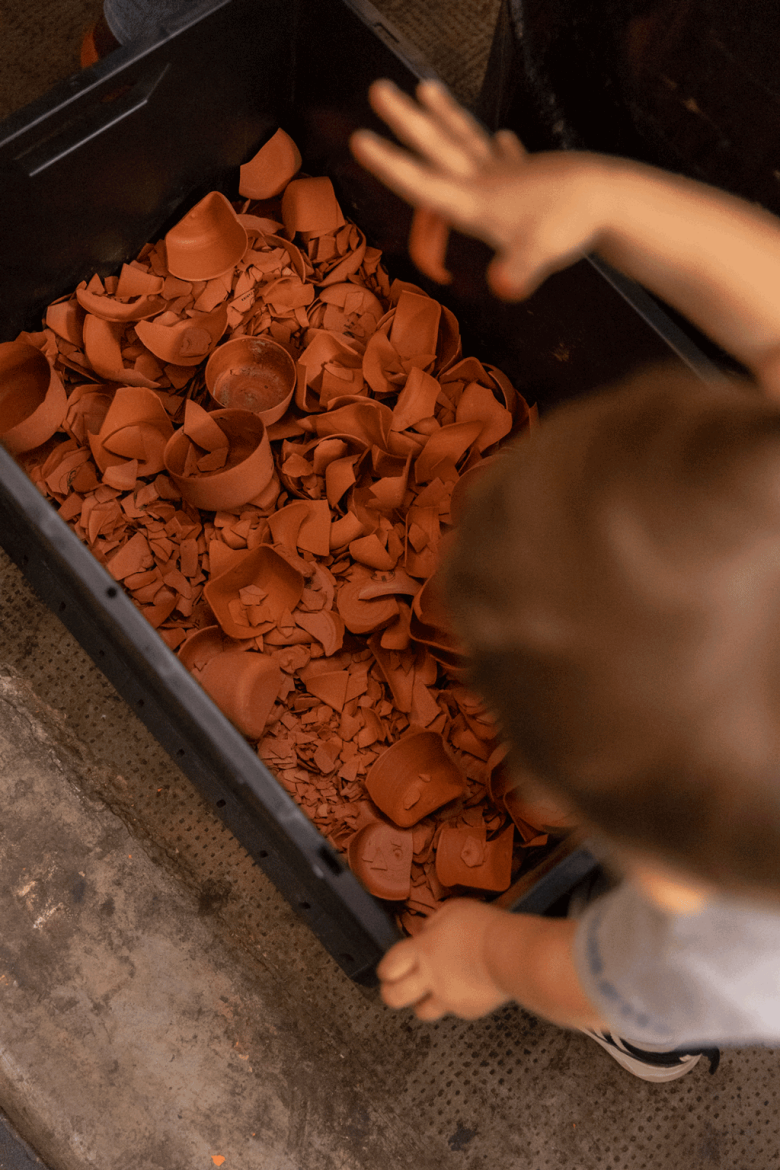
Maaike de Reuver Floris Heuer, Nadia ten Wolde, Willeke Machiels Loraine Elemans
What is the best approach to organizing a food festival with as little waste and as many new tastes and food innovations as possible? That’s the question all of us at Food Inspiration recently asked ourselves. The result was our Food Inspiration Days Outdoor event in June 2023. Approximately 1,200 people from the food industry visited the two day festival hosted at Remeker Farms, a well known Dutch purveyor of Remeker cheese.
No waste and a lot of taste during Food Inspiration Days Outdoor
What does a 100% waste-free B2B event for 1,200 food professionals look like?
6 min





